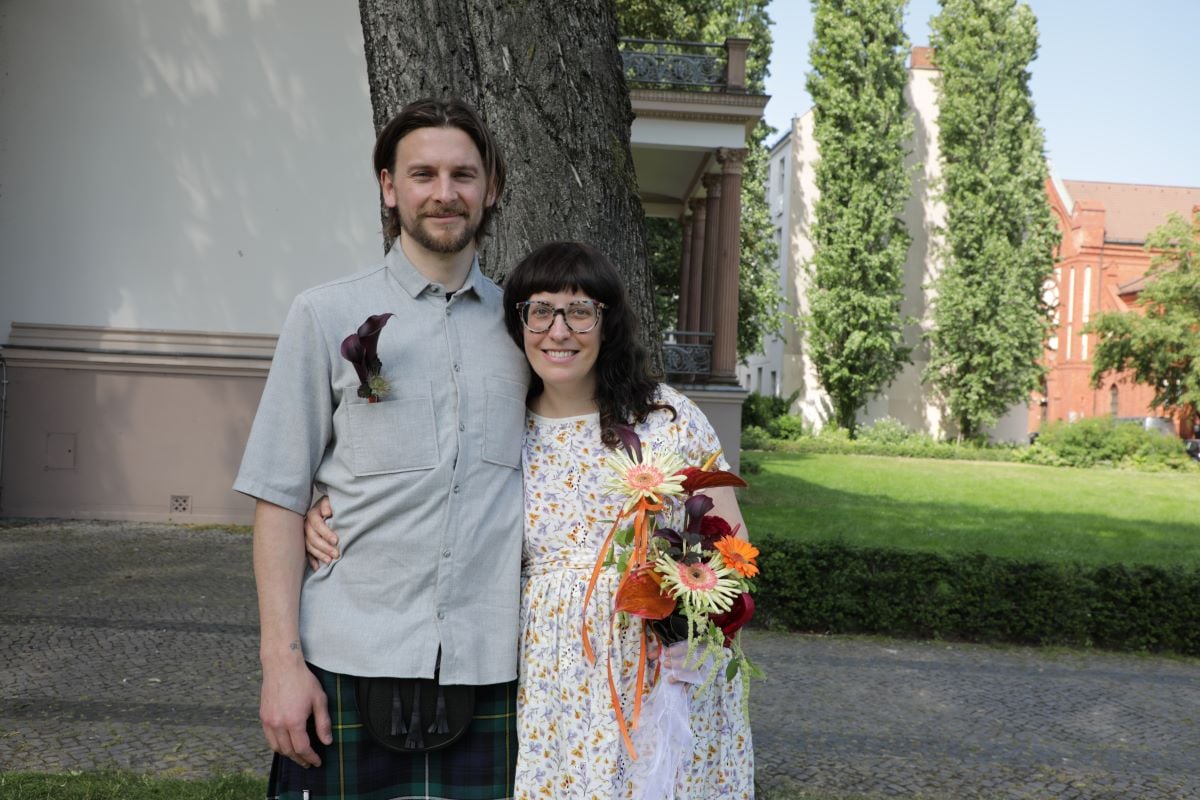Carla Braun-Elwert’s childhood was comprised of mountains. Both the rugged ranges of New Zealand, and the well-trodden peaks which crown the countryside of southern Germany.
Growing up in New Zealand with a German father who adored the natural world, being outdoors was part of the everyday life of Braun-Elwert and her sister. It’s little surprise that the native Kiwi now works near Munich as an editor of natural history and wildlife films.
Braun-Elwert also just directed her first feature-length film, Symphony on Skis, a poetic tribute to her late father Gottlieb, who in 1985 pioneered an iconic route through New Zealand’s Southern Alps. The hour-long cinematic adventure, which airs at the 8th Down Under Berlin: Australian and New Zealand Film Festival, also has a version in German.
Through her work, Braun-Elwert hopes to push viewers to see – and protect – the natural places around them. “What I want to achieve is to give people appreciation for the landscape around them and encourage them to go and see it,” said Braun-Elwert on the phone on Friday from a nature film festival in Munich. “To leave the city and take their kids outside.”
She thinks of her cousins in Berlin, and their urban surroundings that differed dramatically from hers. “I just thought that with the ski touring, I could encourage people to use their own body power to get up the mountain.”
Skiing: 'The melody lingers in your mind afterwards'
That’s exactly what Gottlieb and two friends did, when they set out on an intense 18-hour journey on skies through New Zealand's southern Alps, covering over 40km and 4000 vertical meters in an 18 hour push.
Despite the growing challenge, Gottlieb had compared the journey with a pursuit as equally beautiful and creative: music.
“A ski traverse is like a well composed piece of music,” Gottlieb had said. “It flows with harmony, surprises with the unexpected. In engages all your emotions and the melody lingers in your mind afterwards.”
In 2015, on the 30th anniversary of her father’s journey, Braun-Elwert sought out on the same adventure with a film crew, later lacing the picturesque landscape with music and old video footage.
Like a journey in the mountains itself, the post-production process was filled with obstacles. There were months of waiting to get responses about distribution, re-takes and technical problems which needed to be solved.
“I was stopping and starting, and it took a long time,” says Braun-Elwert. “It was 5 months of post production work. It just takes awhile to organize it all.”
.jpg)
New Zealand's Fox Glacier, part of the Symphony on Skis. Photo: Matthew Goodman
Similar but different
For six weeks every winter as children, Braun-Elwert and her sister would accompany their father back to his hilly Heimat in the south of Germany. Growing up bilingual in German and English, the two later returned to Germany on school exchange programs, captivated by the similar yet different landscapes around them when they would head into the mountains.
“In Europe, there’s so many people in the actual mountains. It is similar but New Zealand is definitely wilder,” said Braun-Elwert. “You have to count on that when you go on a trip. You can’t just go to the next hut where there’s people. You have to be prepared for every scenario before you leave.”
Further fuelled with inspiration from New Zealand’s mountains, Braun-Elwert is currently developing the concept of a thirty minute film which would showcase the country's Alps.
For now, Braun-Elwert hopes Symphony on Skies will be accessible for all audiences, whether seeking a similar path or enjoying the New Zealand's Alps from the comfort of their couches.
“I think the human aspect shines through and people think: “Okay, mountain people are not crazy people. They’re just human beings with emotions,” says Braun-Elwert. “I wanted to try to create: why people go on mountain journeys, why do people cross the southern Alps? It’s amazing, to answer that question.”
This article is part of our new My German Job series. Want us to spotlight your career as well? Email us at [email protected].




 Please whitelist us to continue reading.
Please whitelist us to continue reading.
Member comments